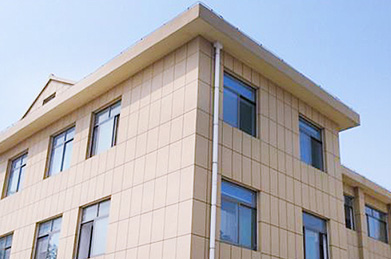Differences between PVC material and PU material
PVC material with PU material, what kind of difference
Many people do not know, in the end PVC material with PU material, what kind of difference.
PVC material in the manufacturing process will first hot-melt plastic granules into a paste with stirring, a predetermined uniform coating thickness in the T / C knitted fabric substrate, and then into the foaming furnace for foaming, so that it has to adapt to production of a variety of different products, different requirements softness, while in baked surface treatment (dyeing, embossed, polished, matting, grinding fluff, mainly in accordance with the specific requirements for the product).
PU material in the manufacturing process more complicated than the PVC material, since the base fabric is PU canvas PU material good tensile strength, in addition to the above may be coated base fabric, the base fabric may also be included in the middle, so that the outside fabric does not exist in the end. The physical properties of PU leather material than PVC and good resistance to the twists and turns, good flexibility, tensile strength, with permeability (PVC-free). PVC material pattern is formed by pressing a steel pattern roll; PU material pattern is a pattern paper first heat pressed against the surface of semi-finished leather, were waiting for the paper to cool before separating leather, do surface deal with. The price is higher than the PVC material more than doubled, some special requirements of PU material than the price of PVC material to be 2-3 times higher. PU material needed for general pattern paper will come only with 4-5 times scrapped; long life cycle pattern roll, so PU material costs to be higher than the PVC material.
PU, PVC difference way easier to see from the corner of the base fabric PU PVC thick than many, also feel a difference, PU's soft some; PVC feel some harder; you can also use fire to burn, PU's To taste the taste of light than PVC lot.
Applications PU material
In the more common insulating soles for PU material and rubber material. With environmental protection, non-carbon era, more environmentally friendly PU material used in insulation for more shoes. PU material itself has a certain degree of insulation properties, and at high temperatures, the liquid compound by adding insulating liquid PU, PU material will more insulating soles, while taking into account environmental protection. Rubber itself has good insulating properties, but the rubber molding process is not easy, is likely to cause some impact on the environment. So now the sole insulated rubber sole has gradually been replaced by the PU bottom trend. Electrical insulating safety shoes shoes is generally worn when operating electrical power distribution during an auxiliary appliances. Generally divided into low-voltage insulated shoes, 6KV above 10KV high voltage insulation or insulation. In the case of low-voltage electrical charging operations, wear insulated shoes can be a normal job. However, in the case of high-voltage live, if only rely on insulated shoes, not wear other insulated protective equipment is not allowed. Insulated shoes can only protect the foot from injury, but other exposed parts are likely to be dangerous.
Insulation inside the shoe during normal use, should avoid contact with sharp objects, sharp objects piercing the shoe to prevent the insulating layer at risk. But also to prevent mechanical damage, should be correct and reasonable maintenance. Avoid contact with heat, oil, acid and corrosive substances. Other insulation materials, together with supporting insulated shoes also insulated gloves, insulated clothing.
To ensure safety, the prevention of safety shoes insulation test cycle is generally not more than six months. Such as shoes have broken off the bottom and so on, should be replaced.





